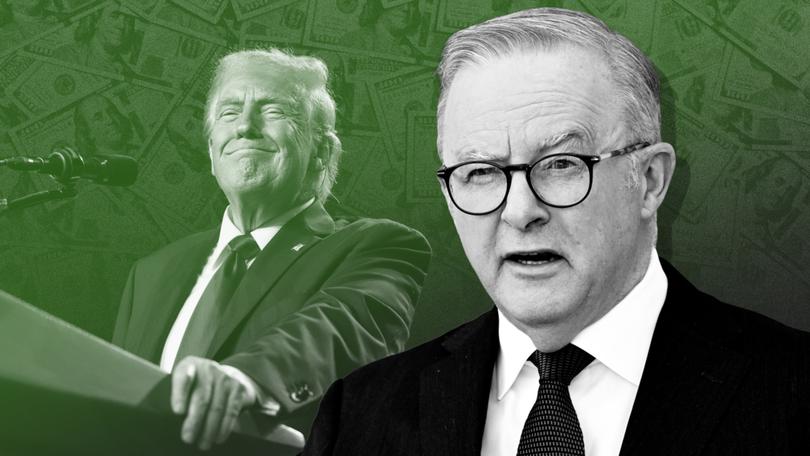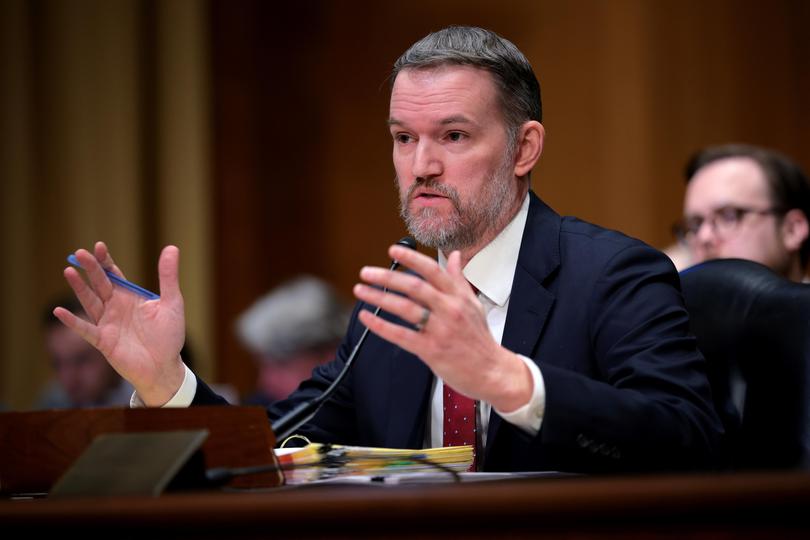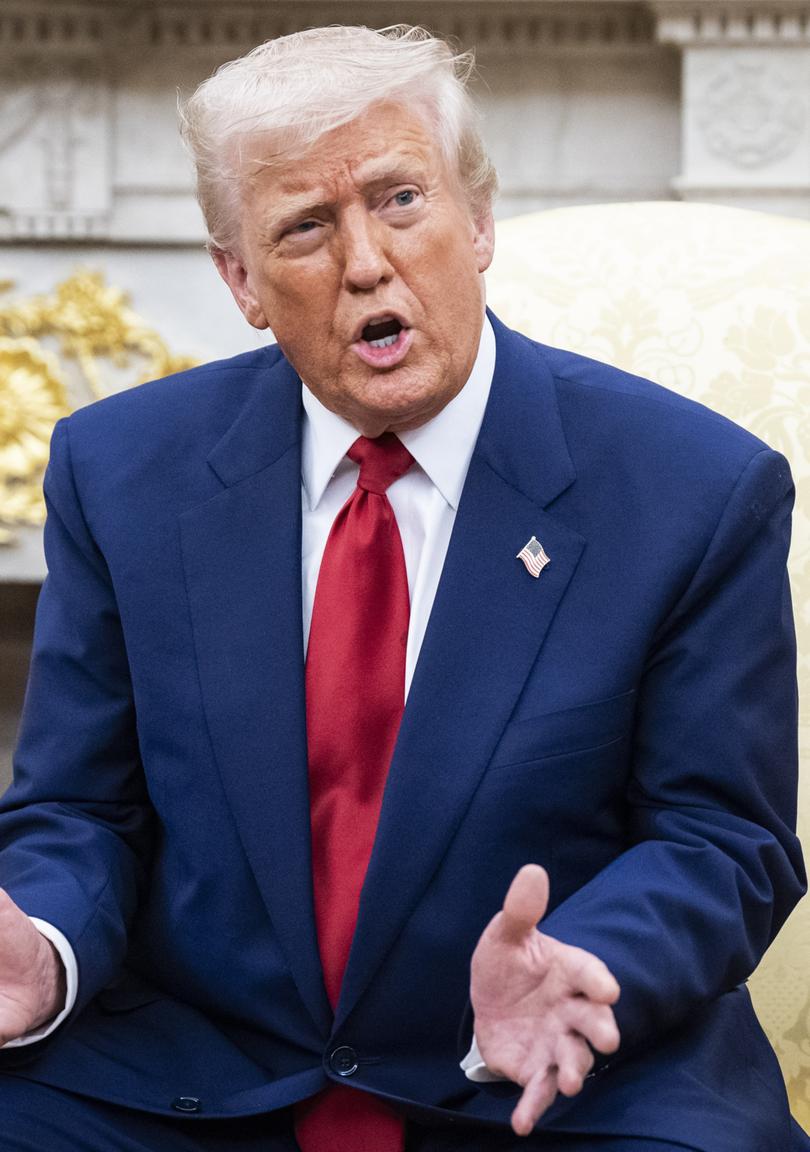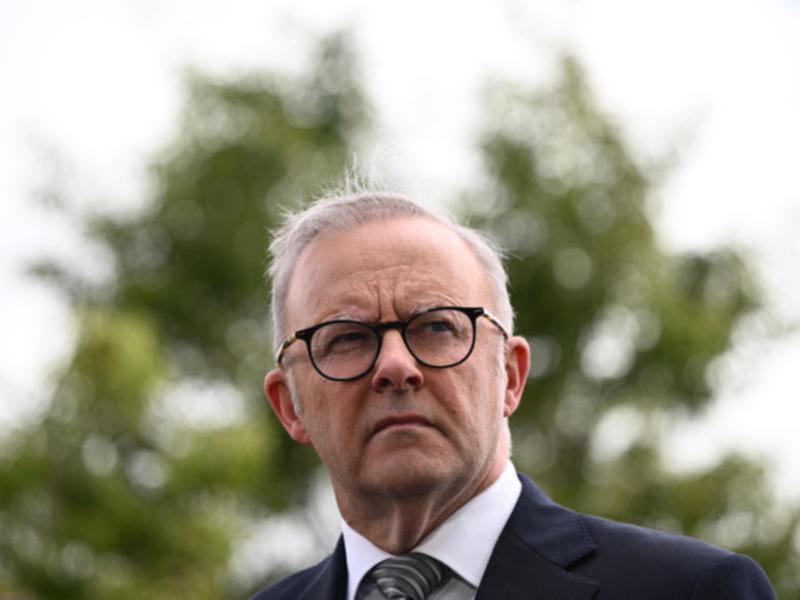LATIKA M BOURKE: Australia still has friends in Washington, so why hasn’t the PM asked for help on tariffs?
LATIKA M BOURKE: Albanese can’t stop talking about Trump, when it suits him. But when it comes to spelling out how he is planning to broker a deal with the US President, he is characteristically evasive.

Prime Minister Anthony Albanese can’t stop talking about Donald Trump, when it suits him.
But when it comes to spelling out how he is planning to broker a deal with the US President, he is characteristically evasive.
He is swift to include Mr Trump in his electioneering for so long as he can claim that he is akin to Opposition Leader Peter Dutton, as well as to declare that he’ll “always stand up for Australia” against the Americanisation of our country.
Sign up to The Nightly's newsletters.
Get the first look at the digital newspaper, curated daily stories and breaking headlines delivered to your inbox.
By continuing you agree to our Terms and Privacy Policy.But he cannot state how he is standing up for Australia when pressed on the simplest of details.
While it might not feel like it, Australia still has a lot of friends in Washington DC.
While US President Donald Trump boasted at a black tie dinner that world leaders were on the phone “kissing his ass” trying to avert his swingeing tariffs, one Democrat took to Australia’s defence.
Senator Mark Warner demanded to know why Australia had been unable to escape being whacked with Donald Trump’s Liberation Day tariff stick.
“The idea that we are going to whack friend and foe alike, and particularly friends of this level, is both, I think, insulting the Australians, undermines our national security, and frankly, makes us not a good partner going forward,” Senator Warner told US Trade Representative Jamieson Greer.
“Australia is one of our strongest allies.
“We have a relationship which is key to their national security.
“It’s key to our industrial base so we can continue to build, build subs, which is terribly important.
“We have a free trade agreement with Australia, we have a trade surplus with Australia.”

Mr Greer rejected that Australia qualified for any special treatment despite running a trade surplus, saying Australia did not accept US beef and pork and was planning regulations on US tech companies.
Senator Warner’s intervention, while likely fruitless, was not random.
He is one of the many identities making entreaties to the deeply ideological administration that regards friends as worse than foes.
It was no accident that the night before Liberation Day, when President Trump, using junk methodology, imposed tariffs on the bulk of the world, including the uninhabited Australian Heard and McDonald Islands, Mr Albanese posted a selfie of himself meeting golfer Greg Norman.
The Shark is said to be one of the few people capable of taking Australia’s case directly to the frequently golfing president.
Powerful and symbolic proxies are useful for Australia to deploy – it might be unorthodox, but there is nothing ordinary about the Trump Administration’s agenda and treatment of allies.
But what is missing is the leader-to-leader relationship.
Mr Albanese had a long first post-inauguration call with the President but has not made contact since and certainly not since Liberation Day.

Asked by The Nightly who had made direct contact with Mr Trump since the tariffs were announced, Mr Albanese said: “We have continued to make representations through the US Administration.”
“One of the ways that you can deal with diplomacy isn’t to do it with a loud hailer to engage,” Mr Albanese said during a visit to Paddy’s Markets in Cabinet minister Tanya Plibersek’s seat of Sydney on Wednesday morning.
“We have had direct contact with the United States Administration, and we’ll continue to do so.
“We are obviously in caretaker mode at the moment, but we will continue to engage, as we are, through our officials.
“There have been documentations going between our two countries as I have said before.”
Nothing about caretaker mode precludes Mr Albanese from phoning Mr Trump.
His decision to not do so is deliberate, perhaps even vindicated after Mr Trump’s grotesque ass-kissing comment. But it is in contrast to the approach taken by our regional counterparts.
Overnight, South Korea’s acting President, Han Duck-soo and Japan’s Prime Minister Shigeru Ishiba called Mr Trump.
“We have the confines and probability of a great DEAL for both countries,” Mr Trump wrote on Social Media after.
“Their top TEAM is on a plane heading to the U.S., and things are looking good.
“We are likewise dealing with many other countries, all of whom want to make a deal with the United States.
“Like with South Korea, we are bringing up other subjects that are not covered by Trade and Tariffs, and getting them negotiated also.
“‘ONE STOP SHOPPING’ is a beautiful and efficient process!!!”
This is Trump, so heavy caveats apply, but his response shows two things, the first being a willingness to negotiate and the second a welcoming of “top teams” arriving in DC.
The President seemed to contradict himself, almost immediately telling Republicans at dinner later: “I’m telling you, these countries are calling us up, kissing my ass.”
“They are. They’re dying to make a deal.
“We don’t necessarily want to make a deal with them. We’re happy the way we are, taking our $2 billion a day, but they want to make a deal with us.”
But in an acknowledgement that not all within the Administration are even onboard, including Elon Musk, Mr Trump defended his tariffs, which plunged markets worldwide into turmoil when he said: “I know what the hell I’m doing.”
Either way, the economic consequences of a global trade war may force Mr Trump’s negotiating hand.
The Australian government has consistently said it has fared the best of all countries with only 10 per cent tariffs applied and despite Mr Trump’s musings, no ban on beef.
A pharmaceutical tariff could still come.

Unprompted, Mr Albanese raised the threat of a raid on medicines at his later press conference on Thursday, saying he would always stand up for Australia.
When Mr Trump’s arse-kissing comments were put to him, the PMsaid: “That’s not the way I deal with leaders.”
Mr Albanese has been quick to raise Trump’s tariffs throughout the campaign to make political points, such as contrasting himself with Opposition Leader Peter Dutton and painting himself as a tough guy willing and able to guard Australia from Americanisation.
But he has been less eager to spell out what he is doing to stand up for Australia.
This evasiveness is a consistent pattern.
For example, when pressed on who might comprise Australia’s “top team” and when they might be dispatched to Washington, the prime minister appeared to nominate his Treasurer.
“Obviously the Treasurer Jim Chalmers has engaged he’ll continue to be the Treasurer if I am the prime minister,” he said.
Mr Chalmers would be well-poised to lead such a delegation, he convened the heads of the financial regulators to discuss the global volatility on Thursday. The meeting was designed to send a calming signal that those who are in charge are keeping a close eye on the situation and that Australia’s economic fundamentals remain strong.
But on the diplomatic front, the strategy is less clear. If the prime minister has a grand master plan about how to broker a deal with Mr Trump that is being executed by Ambassador Kevin Rudd, it’s one he’s not sharing publicly.
So be it. But if the US ends up agreeing to bargains with counterparts between now and the election, he may regret sticking to yesterday’s diplomatic tactics.

